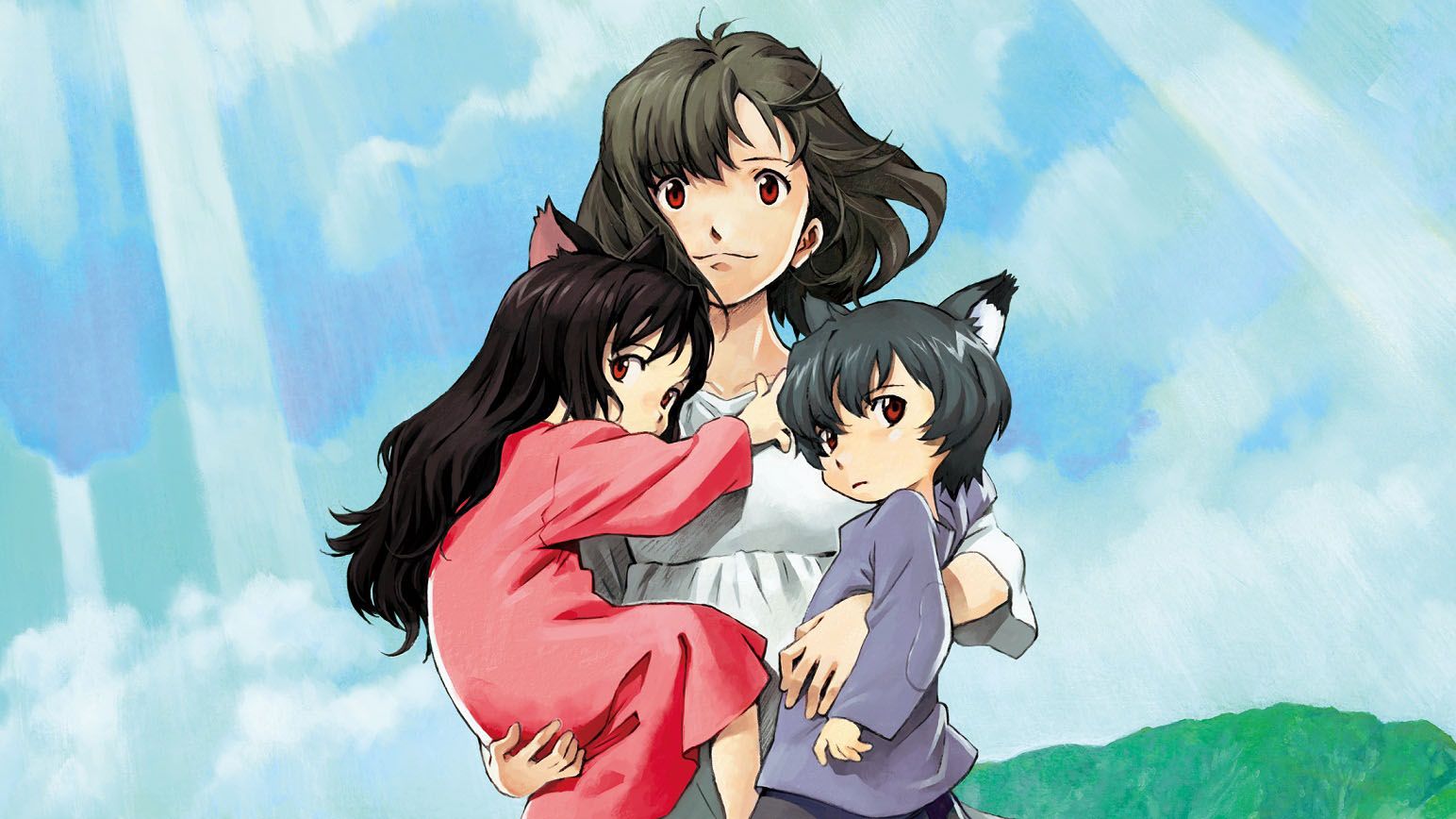The times they are a-changin' for Japanese animation. Studio Ghibli is probably going to close, and its two lead directors, Hayao Miyazaki and Isao Takahata, are well into their 70s. Satoshi Kon, a genius that should be vindicated more often, died in 2010 leaving us too soon at only 46 years old. There is no one in the position of the main animation director of Japan, a post of the utmost prestige.
The main name that comes to mind when talking about the next big name in Japanese anime is Mamoru Hosoda. Born in 1967, and therefore 26 years younger than Miyazaki, he started his career in animation as key animator in popular series like Dragon Ball Z, Sailor Moon and Slam Dunk. At only 33, Hosoda got the position of director working on films of some of the most famous animes: Digimon and One Piece.
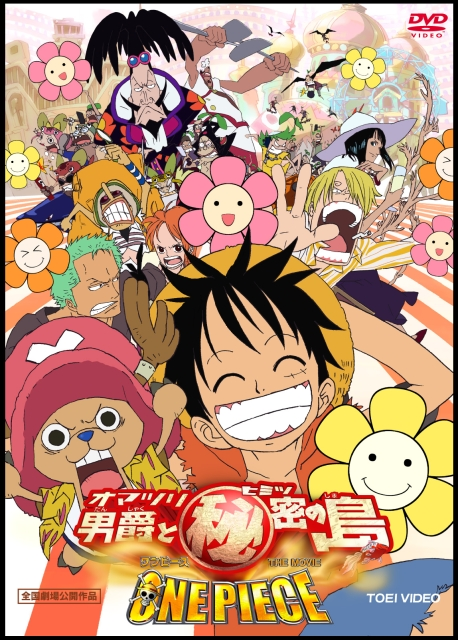
However, Hosoda still had not been able to direct his own movies out of the safe tracks of a well-established anime franchise. He was originally chosen as the director of Howl's Moving Castle, before Miyazaki would come out of his retirement and ended up directing it. It wasn't until 2006 that he was able to develop as an author, directing his first non-franchise movie: The Girl Who Leapt Through Time.
The movie was a surprise hit, winning prizes from the Japanese Academy and the Tokyo Anime Awards. It was not left unnoticed out of Japan, getting the award for Best Animated Film in Sitges, the biggest fantastic movie festival in the world. Three years later he gave life to his second[1] movie, Summer Wars, which also was a hit with critics and audiences.
This success allowed Hosoda to found his own production company, Studio Chizu. In it, he created Wolf Children, with which he surpassed the success of his two previous movies. So far, his career has been outstanding: each one of his three movies has won the Animation of the year award by the Japanese Academy.
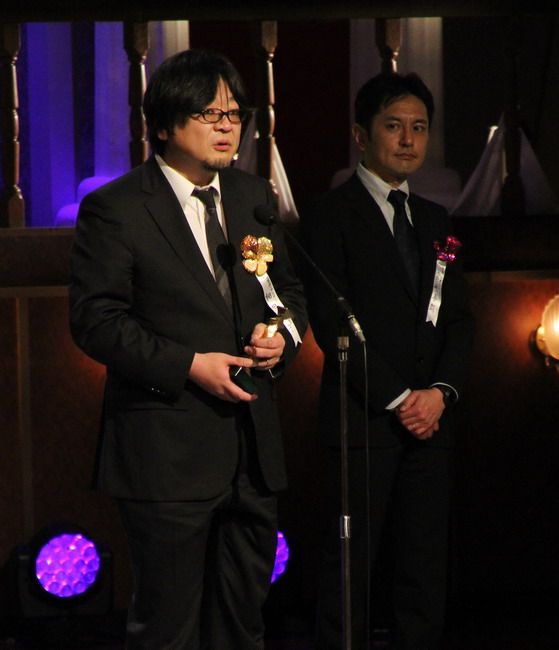
Mamoru Hosoda has been successful, but he managed to achieve something more important: to create his own artistic space. He is one of the few animation directors in Japan working with his own stories: in 2012, Wolf Children was the only animation movie released in Japan that was based on original material. Moreover, his films have a strong identity, one based on themes surprisingly far away from the topics that live in the most popular teen-directed animes. Yes, he talks about youth, but his universe is far more calmer and mature. His cinema is centered on three themes: love, family and time.
Spoilers of The Girl Who Leapt Through Time, Summer Wars and Wolf Children ahead.
Love
In each of the three movies authored by Mamoru Hosoda a couple dwells in the center of the story. As in any love story, the couple does not exist in the beginning: they may be friends (TGWLTT[2], Summer Wars) or may not know each other (Wolf Children). The events of the story bring them together sooner or later. In any case, the protagonist couple love is the engine that moves forward each and every of his movies.
However, there is nothing further from Hosoda's characters than a classical story of passion and romance. They live love in another way, one in which love is the cornerstone of life, but not a purpose in itself. This is particulary striking, as the characters youth would apparently discard this kind of maturity. They are high school students (TGWLTT, Summer Wars) or early college undergraduates (Wolf Children). Their lack of passion can seem unnatural if you stop to think about it, but it's perfectly integrated in their world, in their way of thinking. It's natural to them, as strange -and weirdly refreshing- as it may seem to us.
Love as a strong, stable cornerstone of the world: this is one of the most important themes in Hosoda's universe.
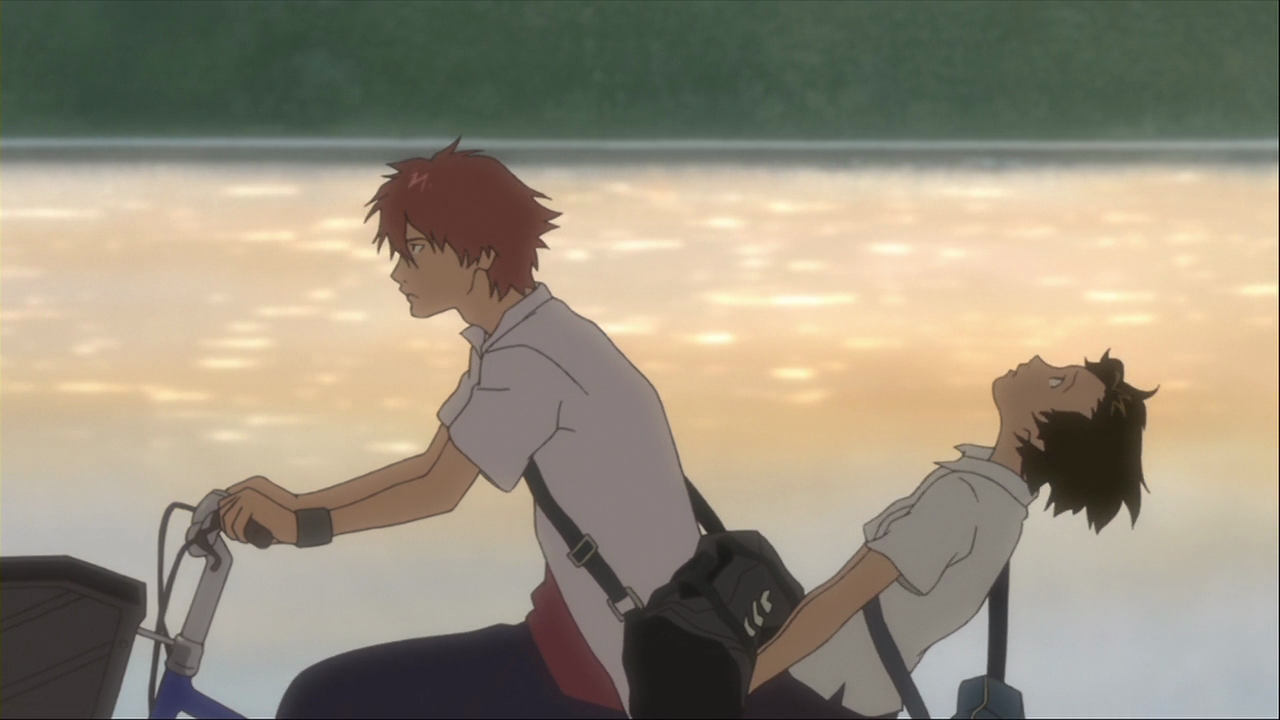
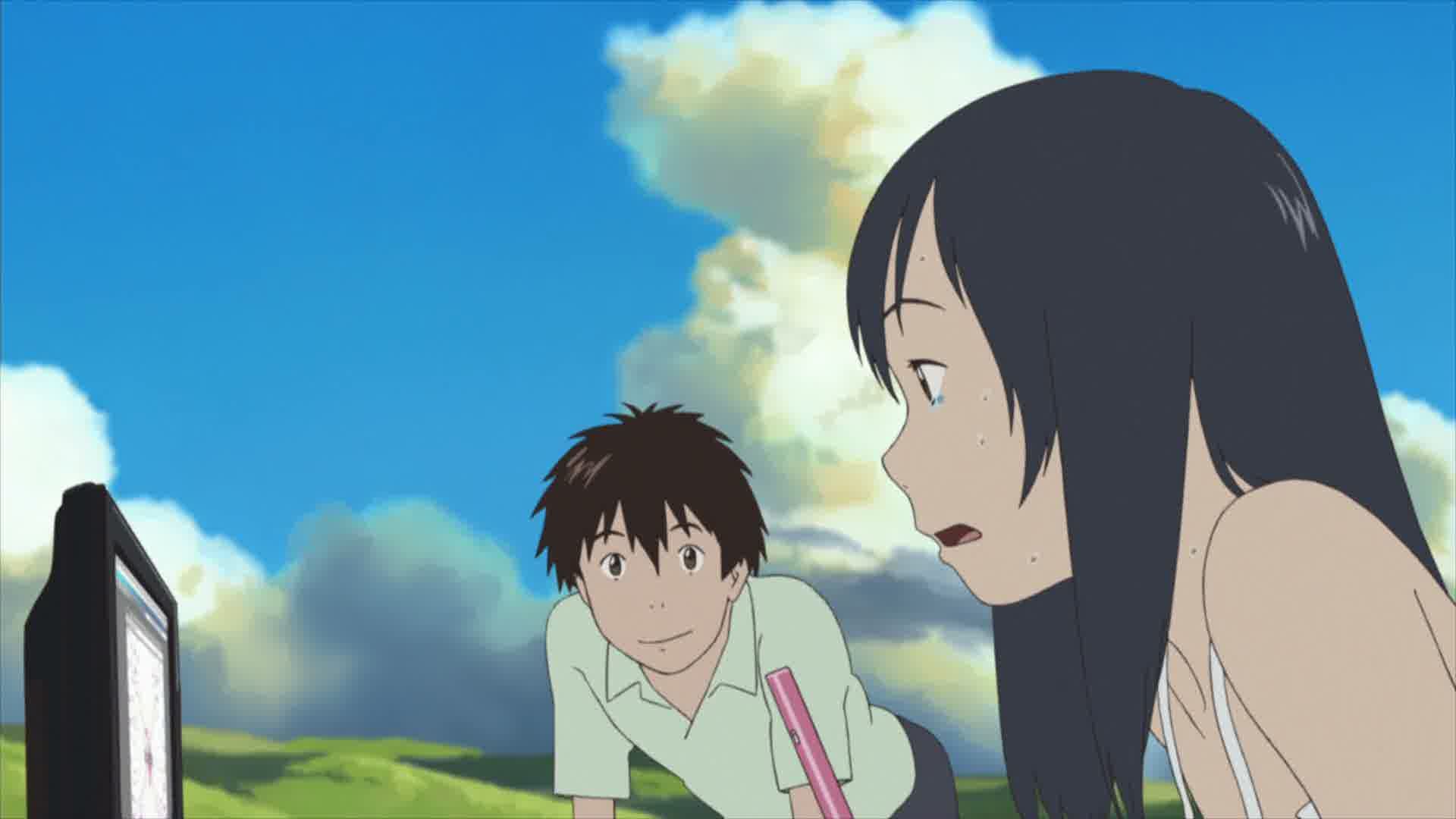
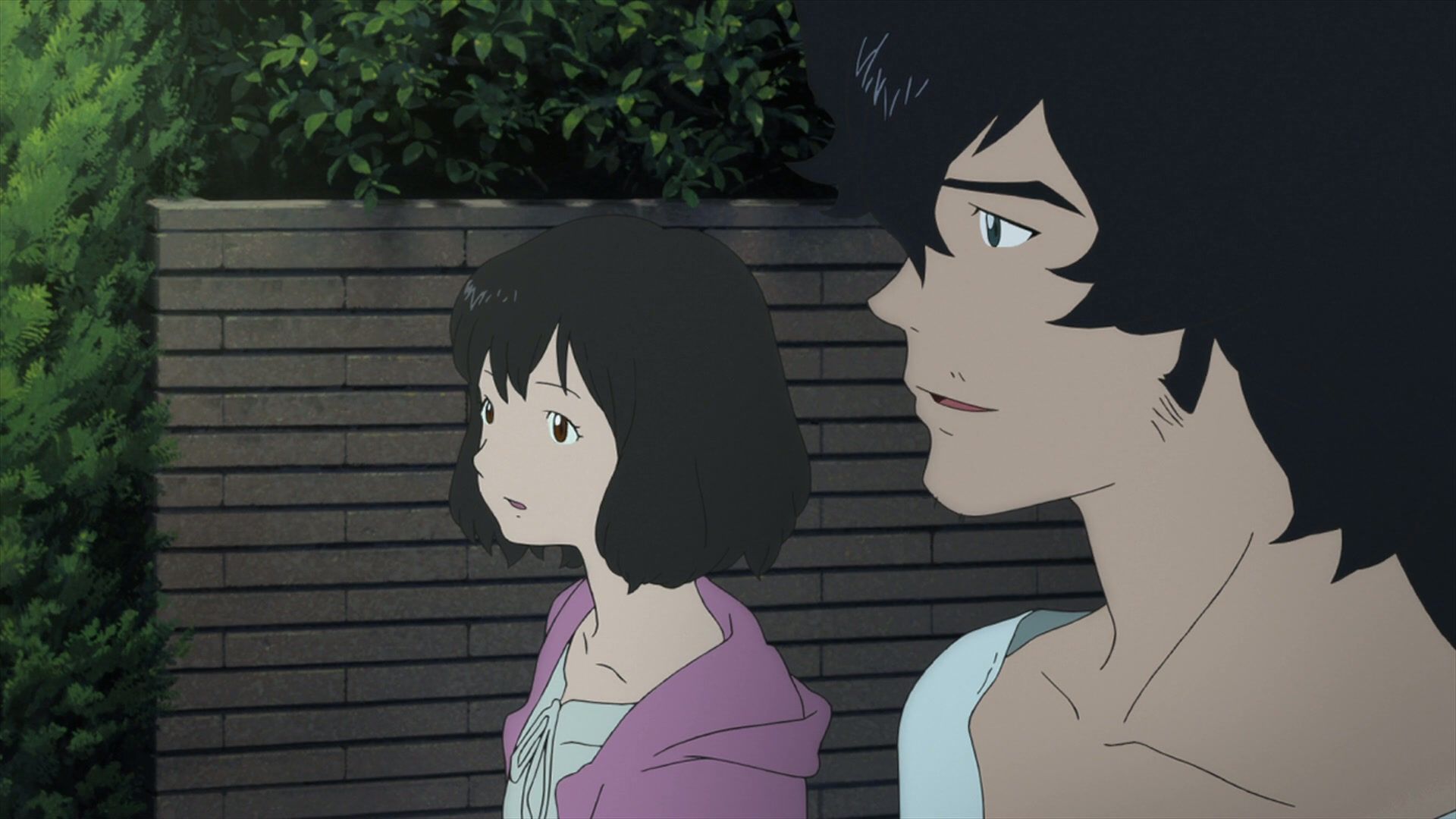
Family
If love is the cornerstone of the world, family is the everlasting house that is built on it. Like an old-fashioned conservative, Hosoda seems to understand family -and not the individual- as the basic unit of society. Family is the definitive protection for the individual, able to know even the most mysterious things: in TGWLTT, after unexpectedly gaining the power of time-travelling, only her aunt can teach Makoto how to use her new powers. Moreover, family is also society in scale: in Summer Wars, Wabisuke's conflict with his family scales up to a problem threatening to destroy the world.
This focus on family is particulary interesting, and could appear conflicting, given the youth of the main characters. Maybe because of that, the three movies have something of Bildungsroman[3]. However, if the classical Bildungsroman always has an inmature protagonist that learns how to outgrow childhood and get independence from family, only TGWLTT works as one. In his two latest movies, Hosoda distorts the Bildungsroman concept in very original ways. In Summer Wars the main character growth brings him to integrate into a big family, not to break with it. And Wolf Children is a perfect example of Bildungsroman, showing the growth of two children into adulthood, only that the point of view is the one of the mother/tutor.
Hosoda's ability to talk about family is excellent. Watching Kenji struggle to be accepted by his beloved's family reminded me of The Quiet Man. Not a bad thing, to bring John Ford to mind. Exploring family nowadays is difficult, doing it from commercial animation movies that are supposedly directed to teenagers is extraordinary.
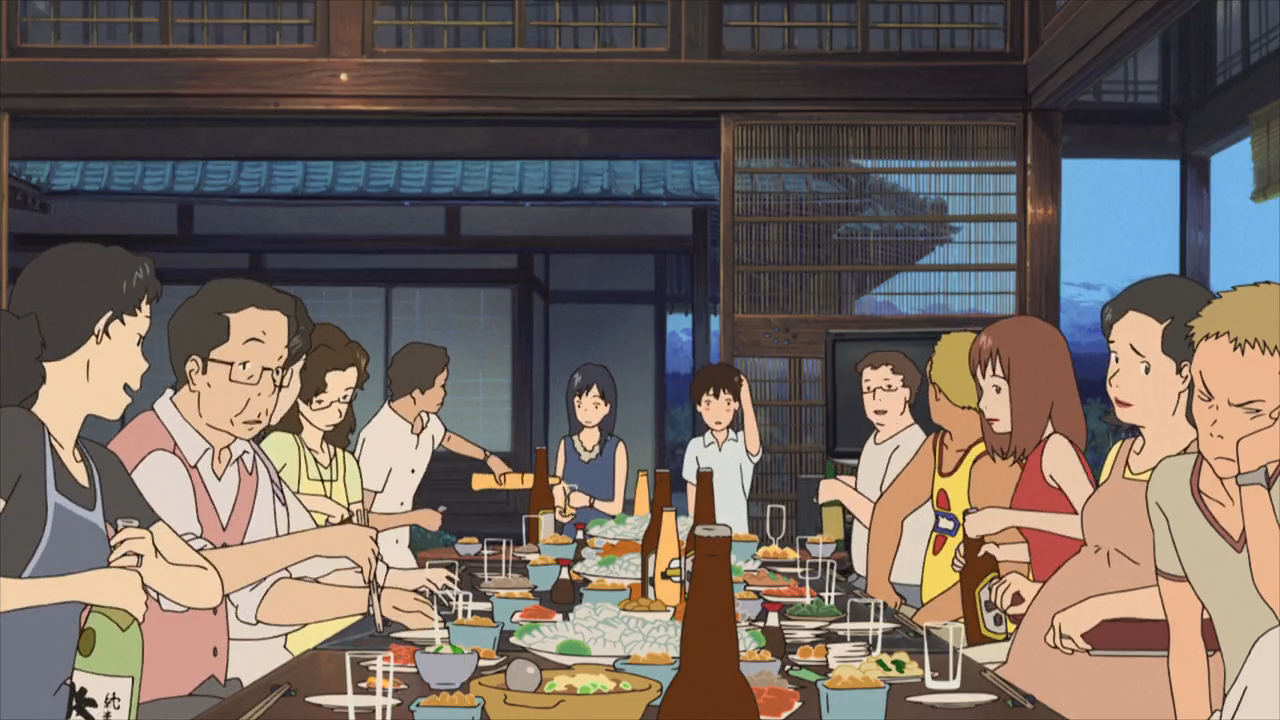
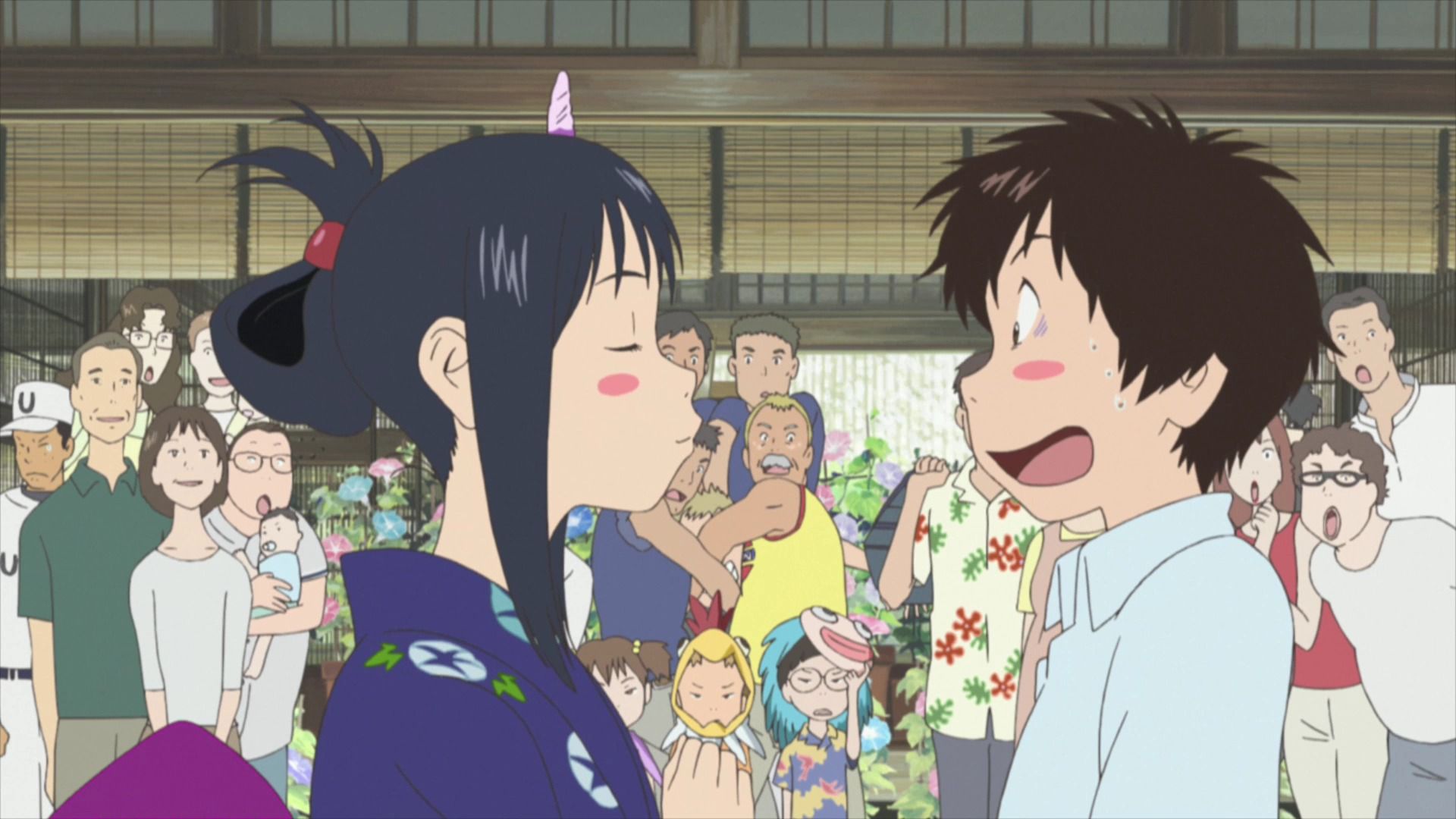
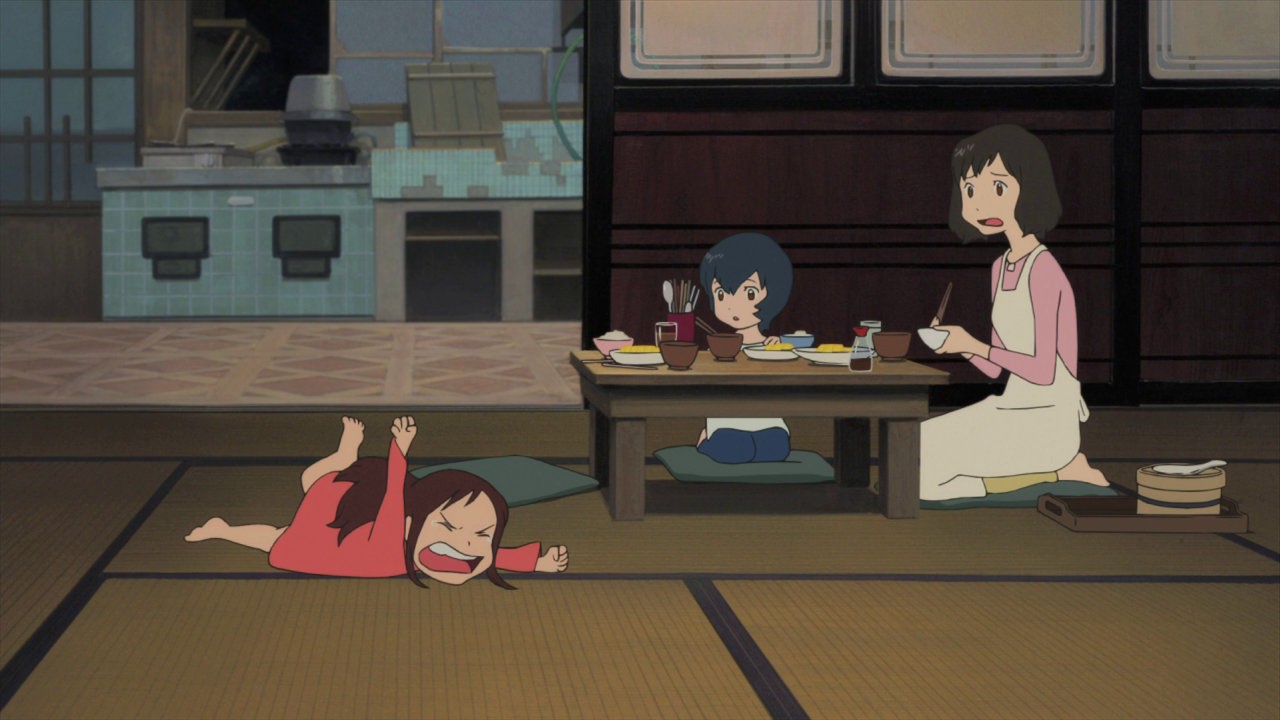
Time
Time is the last dominating theme. In Hosoda, time is not a succession of events or ages, but a succession of generations. People passes, family stays. Family holds up time through parenthood, and at the same time, it provides strength to put up with the misfortunes brought up by time.
Despite those misfortunes, there is no tragic feeling in Hosoda's work. The main element of tragedy, death, is present in his movies: sometimes in a very gruesome way. However, like in the case of love, the death of an individual does not mean anything by itself; it's only important as how it affects the future of the family. The conflict in Wolf Children is not the death of the werewolf itself, but how it leaves Hana alone upbringing their two children. After the cruellest of events, family survives and therefore life goes on.
Time may bring adversities but it also gives tools to overcome them. The family in Summer Wars prepares a strategy to defeat the evil AI Love Machine based on a battle the clan fighted hundreds of years ago. The powers of Makoto in TGWLTT can only be explained thanks to the experience of her aunt, who had the same powers before. The loss of the knowledge of how to be a werewolf is the main problem that Hana faces in Wolf Children.
Finally, time cures everything. May it be that Hosoda's characters get their unnatural maturity from time, from the idea of being merely a piece between their ancestors and their descendants?
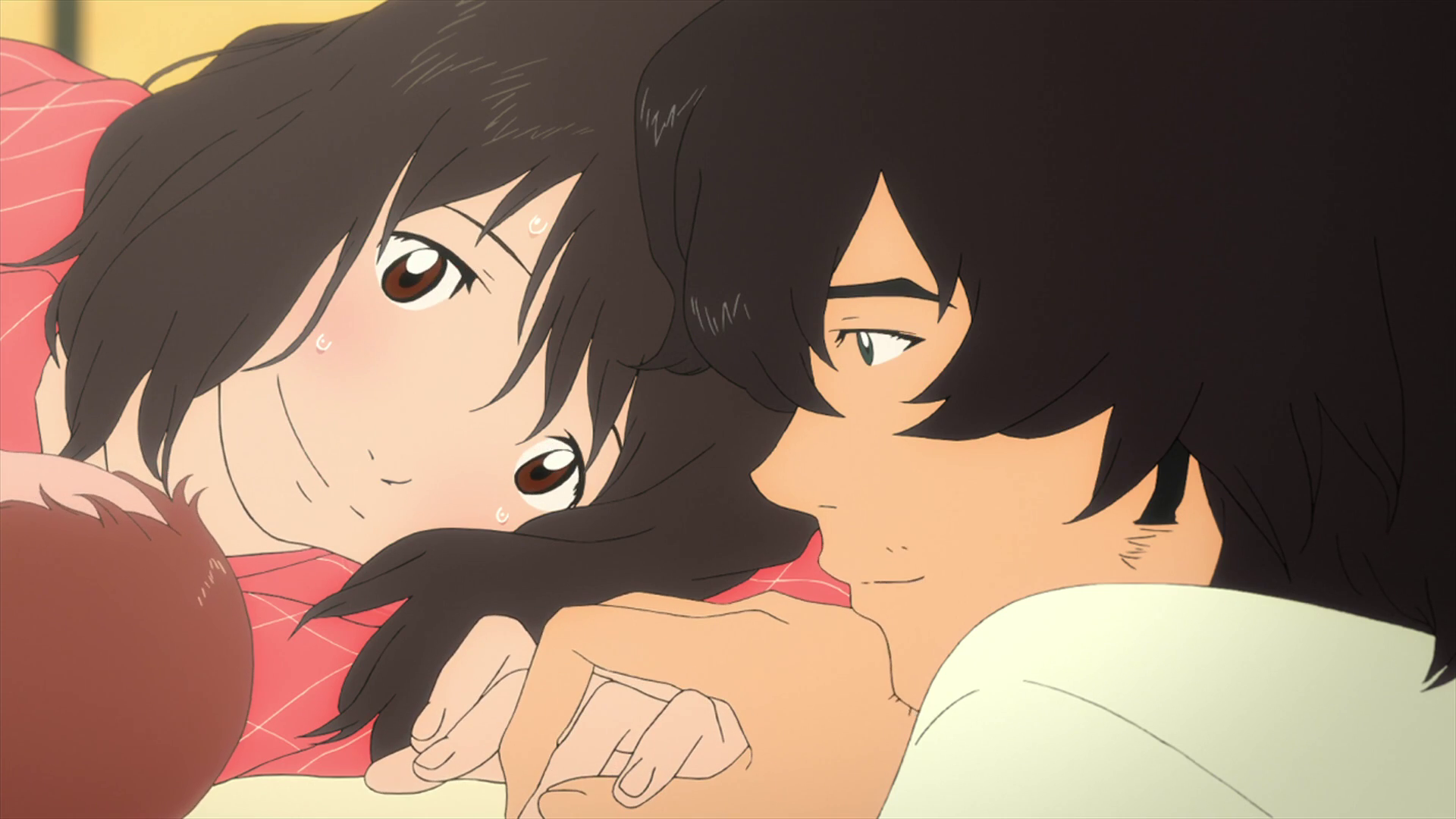
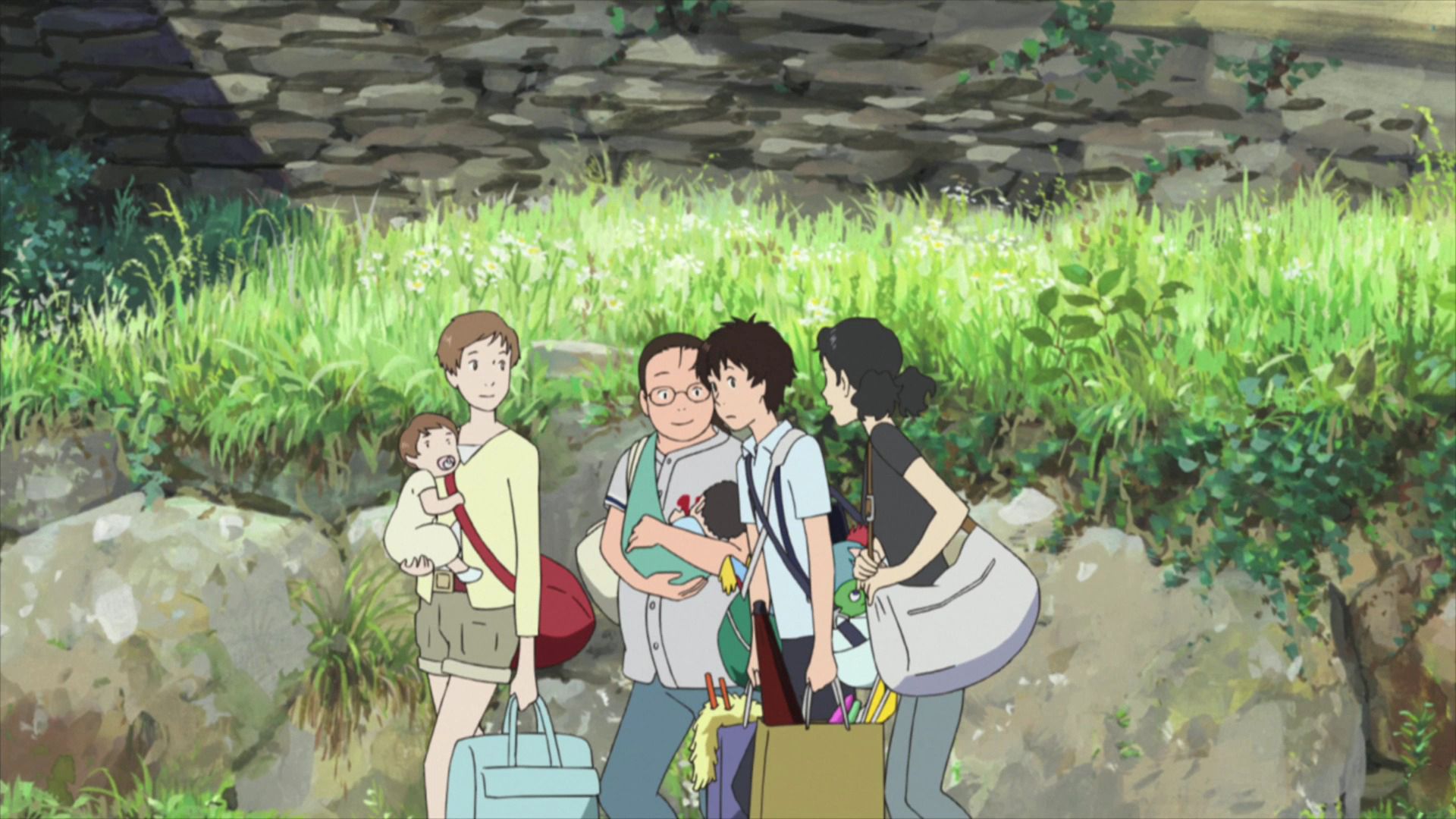
If TGWLTT had only marginal connections with the idea of family, it's also the one that illustrates best the idea of time in Hosoda. At the beginning of the story, Makoto is unable to accept the passing of time. This is literal: she leaps through time trying to create a better version of the world she lives in. But this attitude goes against the nature of Hosoda's universe, and in the end, she has to pay for it: TGWLTT is the only movie with a sad ending. Makoto is only able to discover love when she is strong enough to endure losing it. However, time -again- offers an open door for happiness: "I will be waiting for you in the future" are the last words that Makoto's beloved tells to her.
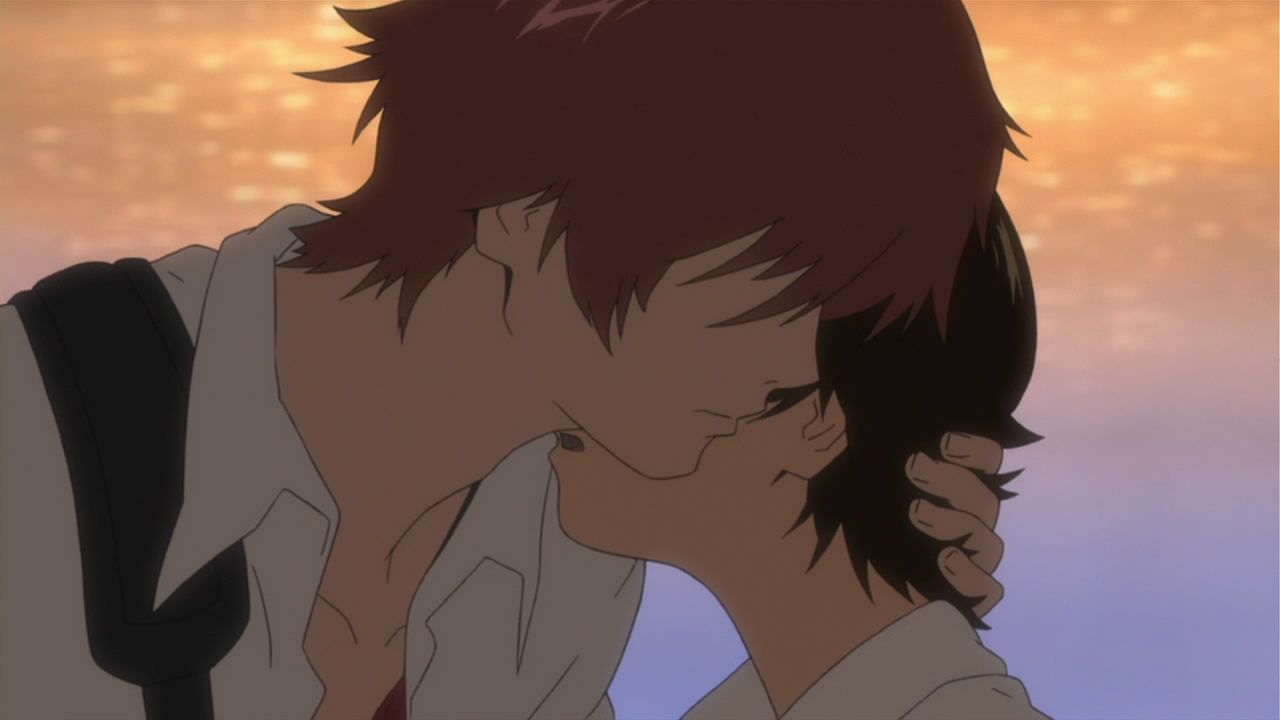
Conclusion
Since the 50s, there has been two opposed tendencies in Japanese cinema: Mizoguchi's passion against Ozu's zen. Hosoda is firmly in the side of the latter. His cinema is mature and calm, not given to any kind of visual exhuberance. In this, he resembles Miyazaki.
However, Hosoda is much more conservative ideologically than the co-founder of Studio Ghibli: the individual freedom celebrated in Porco Rosso or Princess Mononoke is very far from his familiar traditionalism. Even aesthetically we can observe a difference between Hosoda's CG clear lines and the buoyant watercolours favoured by Ghibli.
This is troubling. Hosoda's works obviously longs for the old Japan, and not only in a folklorical way: they also miss its values. So far, this conservatism is so deeply impregnated by melancholy that makes it politically unactive. But Hosoda has the greatest strength that a filmmaker can wish for: talent. He is also young. For his talent to develop further, his cinema will have to become more vigorous. Moreover, we need it, as there is almost no one else in the field. Can a great filmmaker be conservatist and energetic at the same time, specially in anime? We shall see.
For clarity's sake, in this article I will only count as part of Hosoda's filmography the movies he made out of any franchise after leaving Toei: The girl who leapt through time, Summer Wars and Wolf Children. ↩︎
The girl who leapt through time. ↩︎
A Bildungsroman is a novel that focus on the growth of the main character from youth to adulthood. ↩︎
